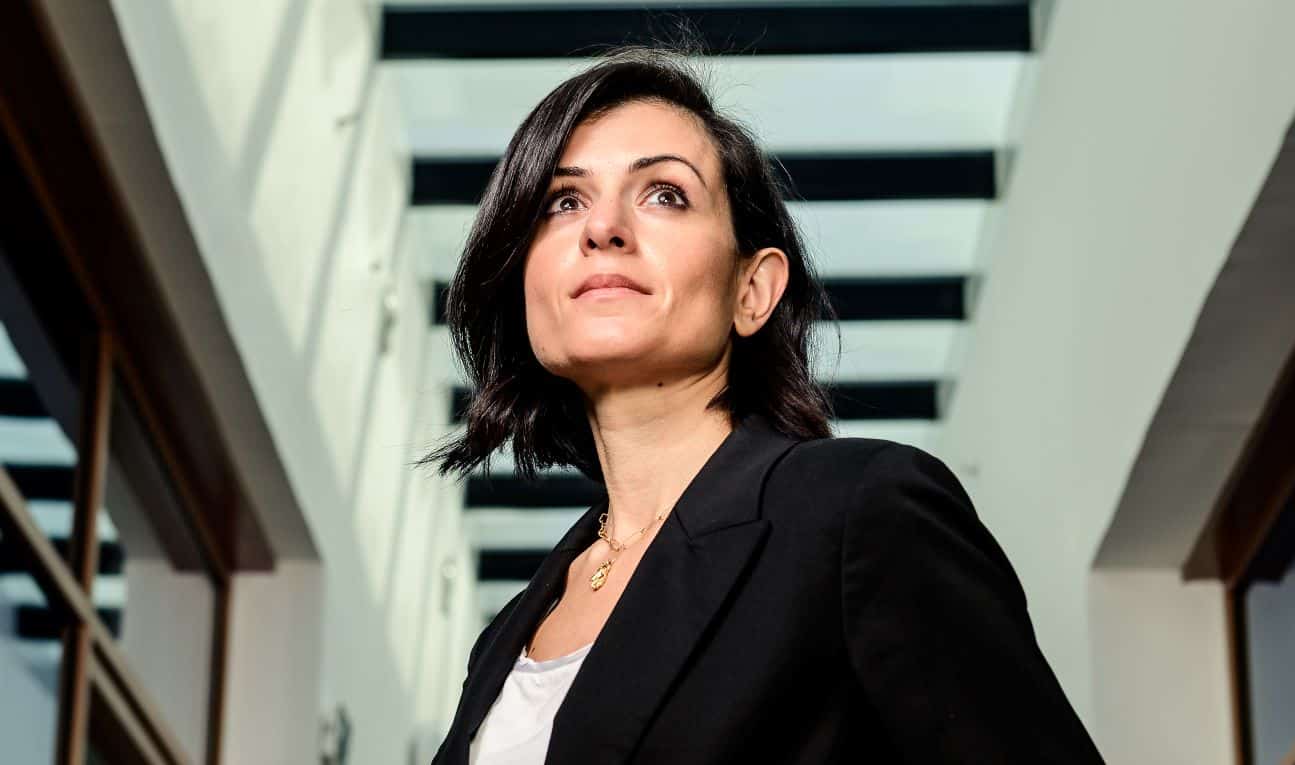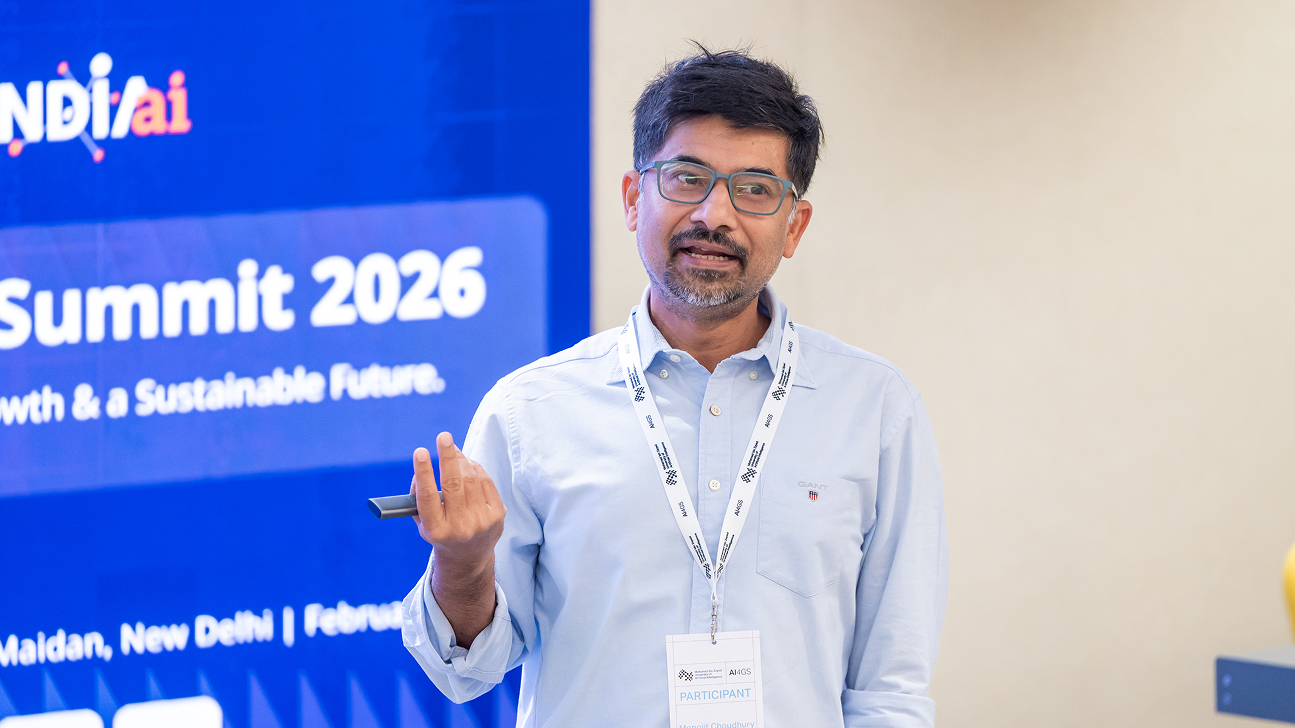ML faculty member and cryptographer joins MBZUAI
Tuesday, December 28, 2021

Professor Najwa Aaraj is the first female faculty member to join MBZUAI in the Machine Learning Department. Aaraj is Chief Researcher at the Cryptography Research Centre at the Technology Innovation Institute (TII) where she leads the research and development of cryptographic technologies, including post-quantum cryptography (PQC) software libraries and hardware implementations, lightweight cryptographic libraries for embedded and RF systems, cryptanalysis, and applied machine learning for cryptographic technologies. Most recently, Aaraj has commenced research into the intersecting area of cryptography, cybersecurity, and machine learning. She is also Acting Chief Researcher at TII’s Autonomous Robotics Research Centre, which is dedicated to breakthrough developments in robotics and autonomy.
Improving machine learning through cryptography
[wps_pull-out-quote-right content=”Typically, cryptography, cybersecurity and machine learning have been seen as three separate disciplines whereas I want to pursue cross-disciplinary research between the three of them.” surename=”Dr. Najwa Aaraj” source=”MBZUAI Adjunct Professor of Machine Learning”]“Given the focus of MBZUAI on artificial intelligence and machine learning, I wanted to pursue research, where you apply machine learning for cybersecurity and cryptography, and the other way around,” Aaraj said. “Typically, cryptography, cybersecurity and machine learning have been seen as three separate disciplines whereas I want to pursue cross-disciplinary research between the three of them. For example, today, we’re using machine learning for inference on edge devices. We are also using machine learning to enable or to facilitate automated cryptanalysis, both from a theoretical and practical perspective, or what we know as side channel analysis. At the same time, we’re looking at weaknesses of machine learning models including threats such as inversion, and model poisoning, then contemplating how we can use cryptography to be able to protect against such attacks.”
[wps_in-the-media title=”In the media” first-item-date-=”Wednesday, December 22, 2021″ first-item-title=”KT Opinion: Are supercomputers that mirror human brain a myth, after all?” first-item-link=”https://www.khaleejtimes.com/opinion/kt-opinion-are-supercomputers-that-mirror-human-brain-a-myth-after-all” first-item-source=”Khaleej Times” second-item-date-=”Monday, December 27, 2021″ second-item-title=”Are Super Computers that Mirror the Human Brain a Myth Afterall?” second-item-link=”https://www.tii.ae/news/are-super-computers-mirror-human-brain-myth-afterall” second-item-source=”Technology Innovation Institute” third-item-date-=”Tuesday, April 27, 2021″ third-item-title=”Meet the Abu Dhabi cryptographer keeping your personal data safe” third-item-link=”https://www.thenationalnews.com/uae/government/meet-the-abu-dhabi-cryptographer-keeping-your-personal-data-safe-1.1211751″ third-item-source=”The National”][/wps_in-the-media]
Supporting women in cybersecurity
Aaraj is an advocate for students pursuing a career in cybersecurity, and a bigger advocate for encouraging more females to enter the technology field.
“There is a big shortage globally, both in cyber practitioners and cryptographers,” she said. “So, it is beneficial for people to have a good handle of two disciplines at a time or three disciplines at a time. For as long as I can remember, I’m one of the few women in the room. Today at TII, it’s impressive, because we have about 30%, or even 35%, female presence. One of the main aims is encouraging flexible arrangements and a mentoring-focused environment to have more women in cybersecurity, cryptography, machine learning, quantum and any other research areas. We still have a long way to go, but I think that the UAE is doing a fantastic job on this.”
The MBZUAI student body is 31% female, a number that expected to grow as more cohorts are added. Aaraj believes the next five or so years will be exciting for cryptographic technologies and cybersecurity given the rise in attacks during the pandemic, and MBZUAI and TII are positioned to contribute enormously.
“Researchers are starting to look into cyber reasoning,” she said. “The whole movement of cyber reasoning, of using machine learning for automated, vulnerability detection and incident response—especially deep learning and reinforcement learning—are proving to be promising in this area. However, there’s still a very, very long way to go.”
“Besides using machine learning for cryptography, there’s a very big need to automate incident response: today, vulnerability management is being aided by machine learning models, but you still need manual work for incident response,” Aaraj said. “A matter of seconds is already too long for you to act towards closing or patching, resolving zero-day and this is where we look at machine learning for the automation of incident responses to replace slower manual processes.”
About Najwa Aaraj
Aaraj earned a Ph.D. with highest distinction in applied cryptography and embedded systems security from Princeton University (USA). Before joining TII, she was Senior Vice President at DarkMatter, a cybersecurity leader based in the UAE.
Aaraj has written multiple conference papers; Institute of Electrical and Electronics Engineers (IEEE) and Association for Computing Machinery (ACM) journal papers and book chapters; and received patents on applied cryptography, embedded system security, and machine learning-based protection of Internet of Things (IoT) systems.
Listen to Aaraj deliver her recent MBZUAI AI Talk on ‘How will our cryptographic toolkit be impacted by quantum computers and Machine Learning?’ on the university’s YouTube channel.
- machine learning ,
- robotics ,
- women in AI ,
- security ,
- aaraj ,
- cryptography ,
Related
AI and the silver screen: how cinema has imagined intelligent machines
Movies have given audiences countless visions of how artificial intelligence might affect our lives. Here are some.....
- cinema ,
- AI ,
- artificial intelligence ,
- art ,
- fiction ,
- science fiction ,
Mind meld: agentic communication through thoughts instead of words
A NeurIPS 2025 study by MBZUAI shows that tapping into agents’ internal structures dramatically improves multi-agent decision-making.
- agents ,
- neurips ,
- machine learning ,
Balancing the future of AI: MBZUAI hosts AI for the Global South workshop
AI4GS brings together diverse voices from across continents to define the challenges that will guide inclusive AI.....
- representation ,
- equitable ,
- global south ,
- AI4GS ,
- event ,
- workshop ,
- languages ,
- inclusion ,
- large language models ,
- llms ,
- accessibility ,


